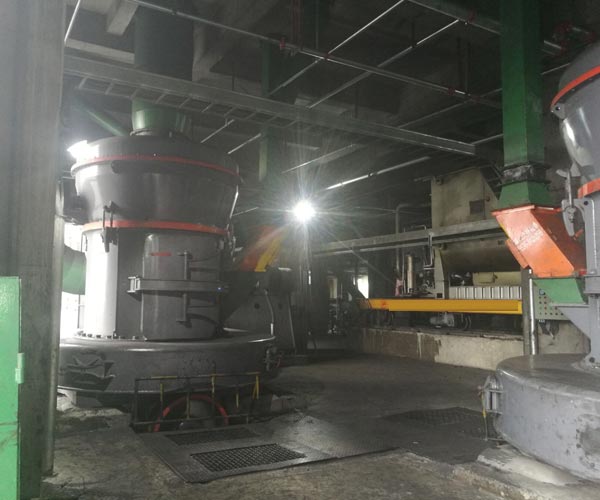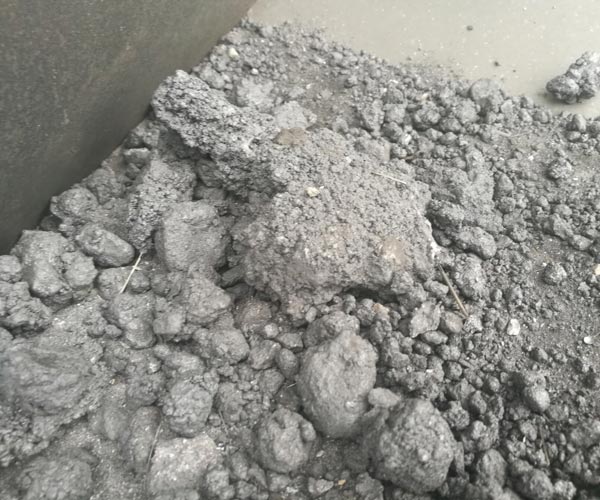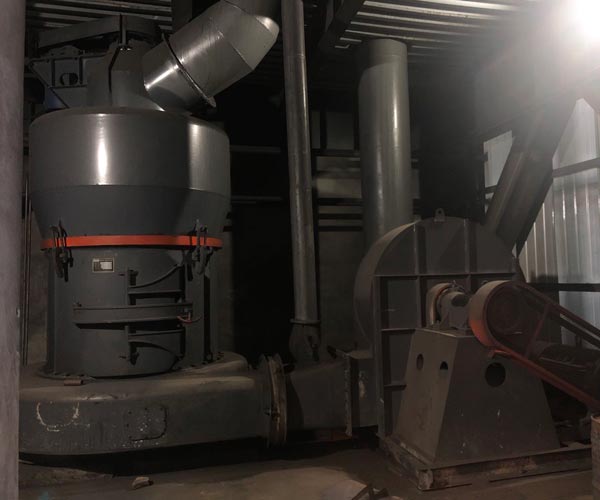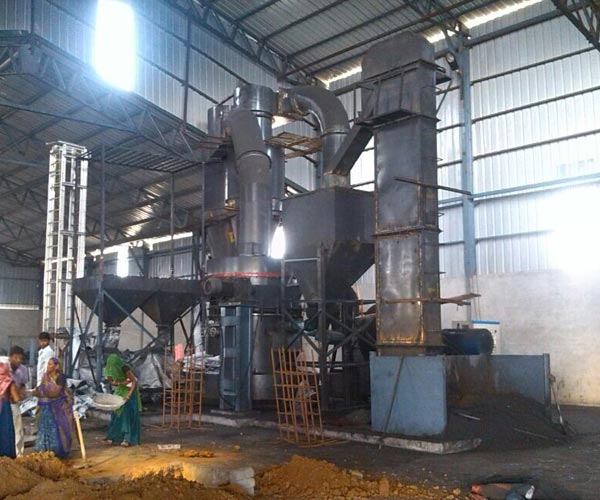
Raymond Mills have emerged as a remarkable solution for efficient grinding, especially when it comes to challenging materials like petroleum coke. Their unique design, which combines crushing and grinding in a single operation, results in high grinding efficiency and lower energy consumption.
24 Online Service

Petroleum coke, often referred to as “pet coke,” is a carbon-rich byproduct of the oil refining process. While it may not be a name like gasoline or diesel, petroleum coke plays a crucial role in various industries and serves as a valuable resource with unique properties.
Petroleum coke is the solid residue left behind after the distillation of crude oil during the refining process. It is primarily composed of carbon, with small amounts of sulfur, nitrogen, and metals such as vanadium and nickel. The quality and properties of petroleum coke can vary depending on the crude oil source and the refining process used. As a result, there are different grades of petroleum coke, ranging from high-sulfur, low-value coke to high-quality, low-sulfur coke.
Petroleum coke has a wide range of applications across various industries, making it a versatile carbonaceous material. Some of its most common uses include:
One of the most significant uses of petroleum coke is as a fuel source. It is often used in power plants and cement kilns as an alternative to coal. Due to its high carbon content and calorific value, it can generate a substantial amount of energy when burned.
In the aluminum smelting industry, petroleum coke is utilized as a key component in the production of carbon anodes. These anodes play a crucial role in the electrolytic reduction of alumina into aluminum metal.
Petroleum coke is also used as a reducing agent in the production of steel. It helps remove impurities such as sulfur and phosphorous from iron ore during the smelting process.
Calcination is a process that involves heating petroleum coke to high temperatures (usually above 1,200 degrees Celsius) to drive off volatile compounds and improve its properties. The resulting calcined petroleum coke, or CPC, is used in the production of electrodes for the steel and aluminum industries, as well as in the manufacturing of carbon anodes for the production of aluminum.
Some cement manufacturers use petroleum coke as a fuel in their kilns. It provides a cost-effective energy source and contributes to the high temperatures required for the clinkerization process.
While petroleum coke has a broad range of applications, grinding it into finer particles is essential for specific industrial processes. Here are some reasons why grinding is necessary:
In applications where petroleum coke is used as a fuel source, such as in power plants and cement kilns, grinding it into finer particles enhances combustion efficiency. Smaller particles have a larger surface area, allowing for better mixing with air and more complete combustion. This leads to increased energy output and reduced emissions.
In industries like aluminum and steel production, petroleum coke is used as a reducing agent or as a component in anodes. Grinding the coke into finer particles increases its reactivity, ensuring that it can effectively participate in the chemical reactions required for these processes. This results in higher-quality end products and improved process efficiency.
Grinding petroleum coke helps achieve uniform particle size distribution. This consistency is critical in applications where precise control of material properties is essential, such as in the production of carbon anodes or calcined petroleum coke.
High-sulfur content in petroleum coke can be problematic in some applications. Grinding the coke into finer particles can help reduce the sulfur content, making it suitable for applications with strict sulfur emissions regulations.
The grinding process allows for customization of petroleum coke properties to meet the specific requirements of various industrial processes. Different grinding techniques and conditions can yield coke with tailored characteristics, ensuring optimal performance in different applications.

In the world of industrial processing and manufacturing, efficiency is the name of the game. Whether you’re producing cement, chemicals, or dealing with the challenging task of grinding petroleum coke, finding the right equipment to optimize your operations is paramount. Raymond Mills have emerged as a potential game-changer in this regard, offering a host of advantages that make them a compelling solution for various grinding needs.
Petroleum coke, a byproduct of the oil refining process, is notorious for being a particularly challenging material to grind. Its high sulfur and heavy metal content, coupled with its abrasiveness, present considerable hurdles for traditional grinding equipment. Raymond Mills, however, have proven themselves to be more than up to the task, providing an efficient and reliable solution for this demanding application.
Before delving into the advantages of Raymond Mills, it’s essential to understand how they work. Raymond Mills belong to the category of high-pressure suspension roller mills. These machines use a unique combination of force, grinding, and airflow to achieve efficient material reduction.
The process begins with the raw material being fed into the Raymond Mill through a vibrating feeder or an inlet hopper. The material is then crushed by a roller assembly, which consists of multiple rollers rotating around their own axes while simultaneously rotating around the central axis of the mill. This action effectively crushes the material between the rollers and the grinding ring.
After the initial crushing, the material is further ground by a series of grinding rollers. The centrifugal force generated by the rotating rollers presses the material against the grinding ring. The high-pressure suspension effect between the rollers and the grinding ring leads to efficient grinding, reducing the material to the desired fineness.
Raymond Mills incorporate an air classifier, which helps to separate the fine particles from the coarse ones. The fine particles are carried out of the mill by the airflow and collected in a cyclone collector or bag filter, while the coarse particles continue to be ground until they meet the required size.
Finally, the finely ground material is collected in a cyclone collector or bag filter, depending on the specific application. This collected product can then be transported for further processing or storage.
Now that we have a basic understanding of how Raymond Mills operate, let’s explore why they are particularly well-suited for grinding petroleum coke.
Raymond Mills excel in grinding efficiency. Their unique design, which combines both crushing and grinding in a single operation, minimizes energy wastage. This efficiency is especially crucial when dealing with challenging materials like petroleum coke, which can be expensive to process due to its abrasiveness.
Raymond Mills are known for their robust construction and low maintenance needs. This is a significant advantage in industries where equipment uptime is critical. For grinding petroleum coke, which can be highly abrasive, having a machine that requires minimal maintenance translates into lower operational costs and increased productivity.
While we’ve focused on petroleum coke, Raymond Mills are versatile and can handle a wide range of materials. This flexibility makes them a valuable asset for industries dealing with multiple raw materials, as they can adapt to different processing requirements without the need for major equipment changes.
Raymond Mills provide excellent control over the particle size distribution of the final product. This precision is essential for industries where product specifications are stringent, ensuring that the ground material meets the required standards consistently.
Raymond Mills are designed to be environmentally friendly. They often include advanced dust collection systems, which help capture and control emissions. This is especially crucial in industries like petroleum refining, where environmental regulations are becoming increasingly stringent.

In the world of heavy industry and energy production, efficiency and sustainability are paramount. One technology that has made significant strides in this regard is the adoption of Raymond Mills for petroleum coke grinding. This innovative solution has not only streamlined the grinding process but has also yielded impressive results for several companies and facilities.
Raymond Mills have been instrumental in transforming the petroleum coke grinding process, offering several advantages:
Now, let’s delve into real-world examples where Raymond Mills have made a significant impact on petroleum coke grinding operations.
A prominent player in the petroleum industry, faced a significant challenge in optimizing their petroleum coke grinding process. They were using outdated equipment that not only consumed excessive energy but also resulted in inconsistent particle sizes. This inconsistency led to difficulties in meeting the stringent quality standards required by their clients.
Upon adopting Raymond Mills for their grinding operations, XYZ Refinery experienced remarkable improvements:
A forward-thinking European company, sought to align its operations with sustainability goals while maintaining profitability. Their commitment to reducing carbon emissions and energy consumption led them to consider environmentally friendly solutions for their petroleum coke grinding process.
Raymond Mills emerged as the ideal choice, and the results were impressive:
A global powerhouse in energy production, operates multiple facilities around the world. They were faced with the challenge of standardizing and optimizing their petroleum coke grinding processes across different locations to achieve operational excellence.
The introduction of Raymond Mills brought remarkable uniformity and efficiency to their global operations:
Our Projects
Copyright © ZENITH, All Right Reserved.
